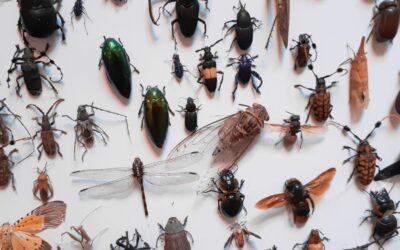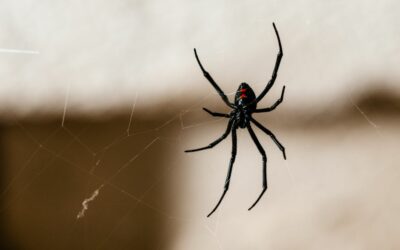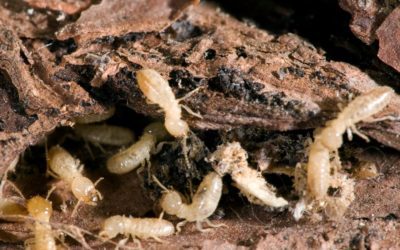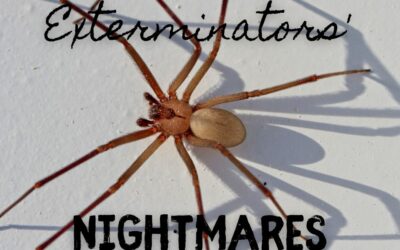
The millions of plants on our beautiful planet have so many uses! From medicine and cooking to home décor and perfumes, we use plants in almost every field imaginable. Did you know there are plants that naturally repel pests? That’s right! Toss your poisons and traps and start planting the pest-deterring plants.
Not only are certain plants perfect for keeping pests away, but they’re also much safer to use when compared to risky chemicals and inhumane traps. In this blog, JB’s Pest Control discusses the ten most common plants for deterring typical insects and bugs in your yard.
Read on to get familiar with these unique and powerful plants and be inspired to soon start your journey to naturally repel pests!
1 | Chrysanthemums
Chrysanthemums are one of the many plants that naturally repel pests. Also known as mums, these unique flowers contain a fragrance that deters many of the common pesky insects and bugs, like:
- Roaches
- Ants
- Lice
- Mites
- Beetles
- Fleas
- Ticks
- Silverfish
Plant mums in the garden to keep out plant-destroying pests. Or plant them throughout the yard to deter ticks and fleas that may hitchhike on you, your family members, or your pets. Additionally, it helps to plant mums near the exterior windows and doors—this aids in keeping roaches and ants from wandering inside.
One thing you want to avoid with planting mums is placing them in a location near artificial outdoor lights. Porch lights and other outside lighting fixtures are convenient when you are in your yard at night. But planting mums near them may be a big mistake. Artificial lights can easily mess with the blooming cycle of mums, making them far less efficient at repelling pests.
2 | Lavender
Lavender is a versatile plant that we use for many different things. It scents soaps, lotions, and candles and has calming properties. Not to mention, we also flavor foods, like ice cream and chocolate, with lavender. Honestly, the list goes on and on. And to this list, add that this incredible plant also naturally repels pests, including:
- Flies
- Fleas
- Moths
- Mosquitos
3 | Basil
Mosquitoes and other flying insects cannot stand the strong scent of growing basil. Not only can you use basil to season and garnish homemade dishes, but you can also plant it with the intention of keeping away pesky insects. Like with mums, planting basil near your home’s doors and windows also helps keep pests from entering indoors.
Even better, harvest your basil to make a DIY bug spray! Drop some basil leaves and stems into a bowl and pour boiling water over them. Allow the mixture to sit for an hour or two, then add vodka. Store the natural insect-repellent in your fridge and apply it to your skin before going outside on a humid day when mosquitoes and flies are more abundant. Just be careful not to use it on your face. This mixture may irritate the eyes, nose, and mouth.
4 | Citronella Grass
You’re likely familiar with citronella, but did you know it’s grass? We use citronella oils, candles, and sprays to repel mosquitos and other biting insects. Citronella is even found in bug sprays and creams meant for applying to your skin to keep the bugs away.
Citronella is also highly effective when planted in its original grass form. Grow citronella grass throughout your yard to keep mosquitoes and flies out of your yard. Like other plants that naturally repel pests, it’s wise to plant citronella near doors and windows to keep flies and mosquitoes from entering the home.

5 | Rosemary
There are many plants that naturally repel pests, like mosquitoes and flies, and rosemary is one of them. Rosemary is a charming-looking herb we often use to season and garnish food and cocktails. Additionally, it adds a strong and herby scent to perfumes, candles, and home cleaners. However, you can also plant it in your garden or yard to keep the pesky insects at bay.
6 | Petunias
Petunias produce stunning blooms that are fragrant and colorful. These flowers are an excellent form of natural pest control in your yard or garden. They are known for deterring common plant-destroying pests, like:
- Aphids
- Squash bugs
- Tomato worms
- Beetles
For a healthy home garden, plant petunias within the flowerbed or around it. This will help to keep pesky insects away from your precious veggies, herbs, and fruits.
7 | Marigolds
Marigolds are among the easiest flowers to grow, making them an excellent choice for a beginner gardener. Keep nuisance insects out of your yard by planting patches of marigolds throughout. These plants will grow in most soils and are practically drought-tolerant.
Remember to water your marigolds regularly so they will produce many blooms. After all, it’s the flowers that deter common pests.
8 | Pitcher Plants
A pitcher plant is exactly as it sounds—it’s a plant that includes structures resembling pitchers. The cup-like leaves trap unwanted insects, such as:
- Ants
- Wasps
- Flies
- Beetles
- Slugs
- Snails
When an insect wanders into the unique structure, it falls in due to the slippery interior. Then, it is trapped inside by the downward-pointing hairs. Eventually, the insect dies from the exhaustion of attempting to escape the effective trap.
Pitcher plants are carnivorous and consume the pests that fall inside of them. It’s essential to note that pitcher plants only occasionally catch pesky insects in your yard. They surely won’t clear an entire space of pests. However, they help you to keep up with some pest control efforts.
9 | Lemongrass
All species of the citronella family are plants that naturally repel pests, specifically blood-sucking mosquitoes. Lemongrass is related to citronella grass, meaning it also contains citronella, which successfully deters mosquitos and other flying insects, like gnats.
It would be best if you planted lemongrass in a sunny spot. If you grow it in the shade, it actually attracts pests. So, for the best pest control, plant lemongrass in a location with full sunlight.
10 | Mint
Mint is effective at deterring some of the most typical home-invading pests, including:
- Mosquitoes
- Ants
- Spiders
This versatile plant can be extremely beneficial in the yard or garden. Not only does it repel pests, but you can also use it to garnish or flavor food and beverages. The most important thing you need to know about growing mint is it grows and spreads rapidly. Before you know it, your tiny mint plant may take over the entire garden or lawn.
So, it’s wise to plant mint in a flower pot instead. You have control over its growth in this case, yet it still repels common yard pests.

Need a Pest-Free Yard Quickly? Naturally Repel Pests with JB’s Pest Control
Sometimes, no matter how hard we try, nature has its own way of doing things. Natural pest control methods are excellent to try. However, they aren’t always as effective as you need them to be. Instead of getting frustrated over the impossible, call your local pest control experts at JB’s Pest Control.
Our team is highly experienced and passionate about the pest control industry. After all, we live here too and have the same concerns many of our local homeowners do.
We pride ourselves on our expert methods and friendly service. Call JB’s Pest Control today to see what we can do to make your yard and home pest-free!




